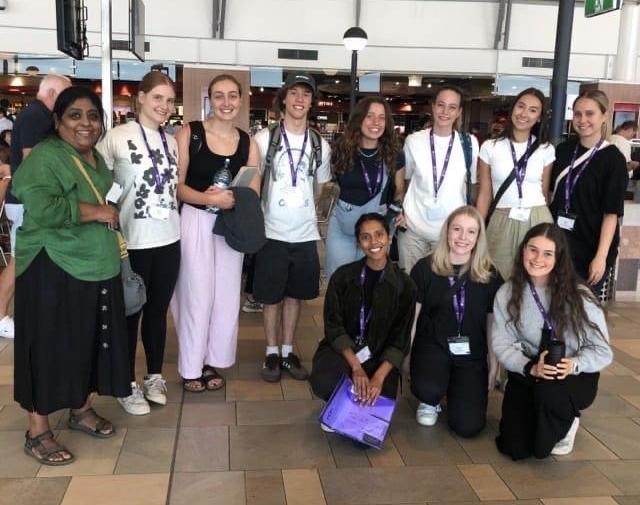 In February 2024, Bachelor of Health Sciences students from UQ’s School of Public Health had the opportunity to learn more about global food security and food sovereignty as part of the New Colombo Plan (NCP) Mobility Program, an Australian Government initiative supporting Australian undergraduates to undertake study opportunities throughout the Indo-Pacific region.
In February 2024, Bachelor of Health Sciences students from UQ’s School of Public Health had the opportunity to learn more about global food security and food sovereignty as part of the New Colombo Plan (NCP) Mobility Program, an Australian Government initiative supporting Australian undergraduates to undertake study opportunities throughout the Indo-Pacific region.
Led by Senior Lecturer Dr Preetha Thomas and PhD student, Kelly D’Cunha, the group of 9 Bachelor of Health Sciences students travelled to India for a two-week fieldwork immersion experience in partnership with the M.S. Swaminathan Research Foundation (MSSRF), a research and community-practice focused not-for-profit organization which supports sustainable agriculture and rural development, empowering local communities.
MSSRF works with tribal and rural communities across India using a participatory approach to ensure that local and indigenous knowledge systems are supported to promote sustainable and economically viable food sovereignty and food security, build community capacity, and engage in policy advocacy at all levels of government.
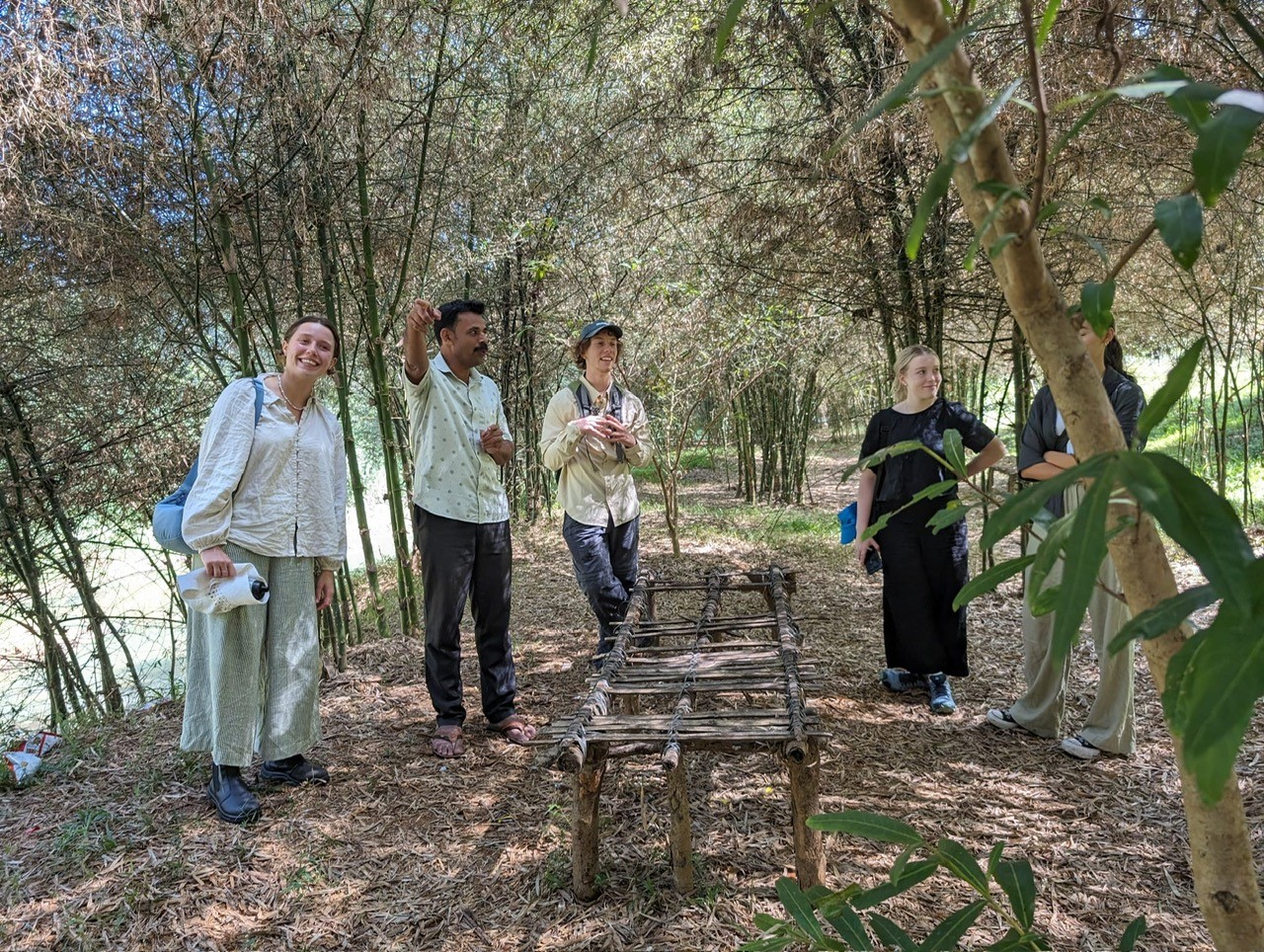
The students had the opportunity to be immersed in experiential place-based learning, engaging with the Foundations ‘Sustainable Livelihoods and Food Security Programme’ - a program that facilitates agricultural and rural development by empowering local and Indigenous communities with practical and technological expertise and skills to improve livelihoods and food and nutrition security by strengthening capacity. The program supports women and small farmers to apply traditional knowledge while dealing with climate change.
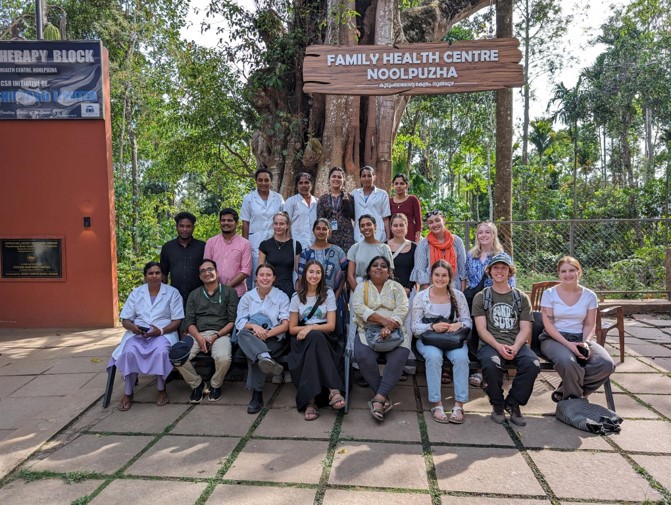
Dr Thomas praised the work of the Foundation, “I was deeply impressed by the work that MSSRF does. The main focus area of MSSRF is Food and Nutrition Security. They engage in research and community work, working with multiple stakeholders to promote sustainable agricultural systems and improved dietary diversity at the community level, provide support to enhance income generation and strengthen rural and farm livelihoods, and build capacity among the local community. It is clear to see how respected the organization is among the communities they work with.”
Students spent one week undergoing an immersion experience in one of the Foundation’s regional centres, the Community Agrobiodiversity Centre in the Wayanad district of Kerala, India. Following this, they visited MSSRF’s headquarters in Chennai where they learned an overview of the wider scope of the work of the Foundation. Their fieldwork experiences included learning about sustainable livelihoods and food security, with a focus on Indigenous peoples of the Wayanad area.
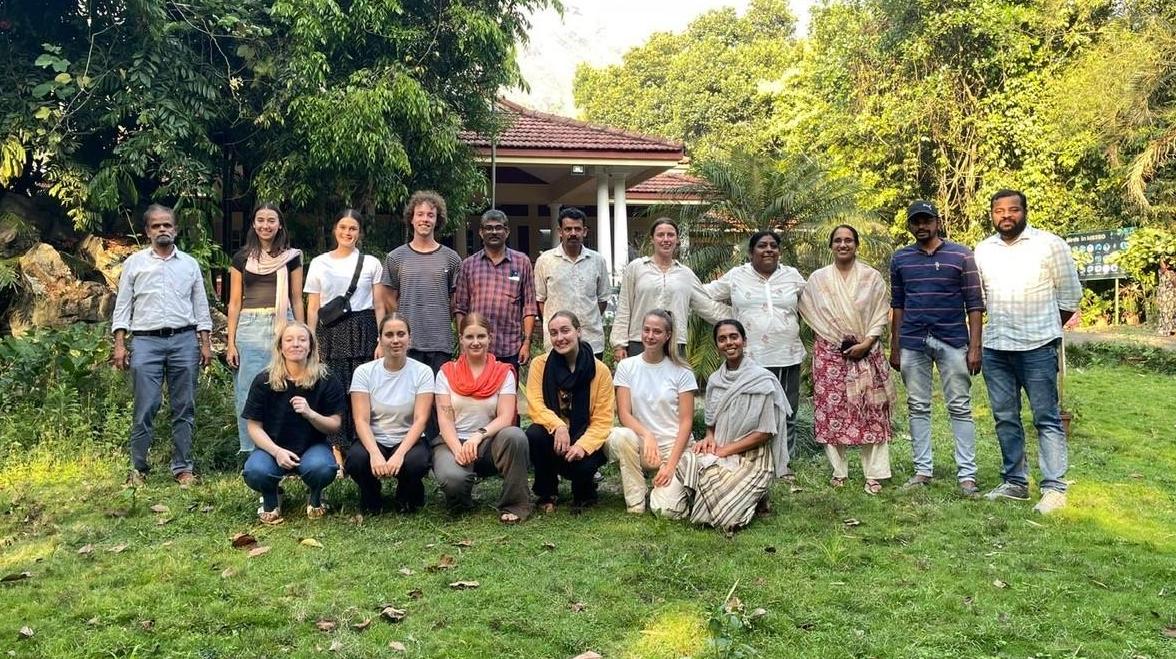
Student participant, Anouk Schumann-Morin, said of the experience, “One of the most enlightening aspects of the trip was exploring the potential of traditional Indigenous food crops. I discovered how their traditional crops could pave the way for increased food sovereignty and security. Witnessing the local communities' reliance on these resilient and nutritious crops was amazing. It was so enlightening to see their traditional practices and self-sufficiency in action.”
Dr Thomas described the immersive nature of the global experience, “The students got to take their studies beyond the classroom. The experience seemed to embody the objectives of our undergraduate program – an understanding of the complex nature of public health issues, the interconnected nature of broad disciplines such as the environment, climate change, nutrition, priority populations, and public health outcomes, and the importance of listening to, working with, and making a difference to local communities through advocacy and action. All this in a context very different to Australia, but they could also see parallels in two very different settings.”
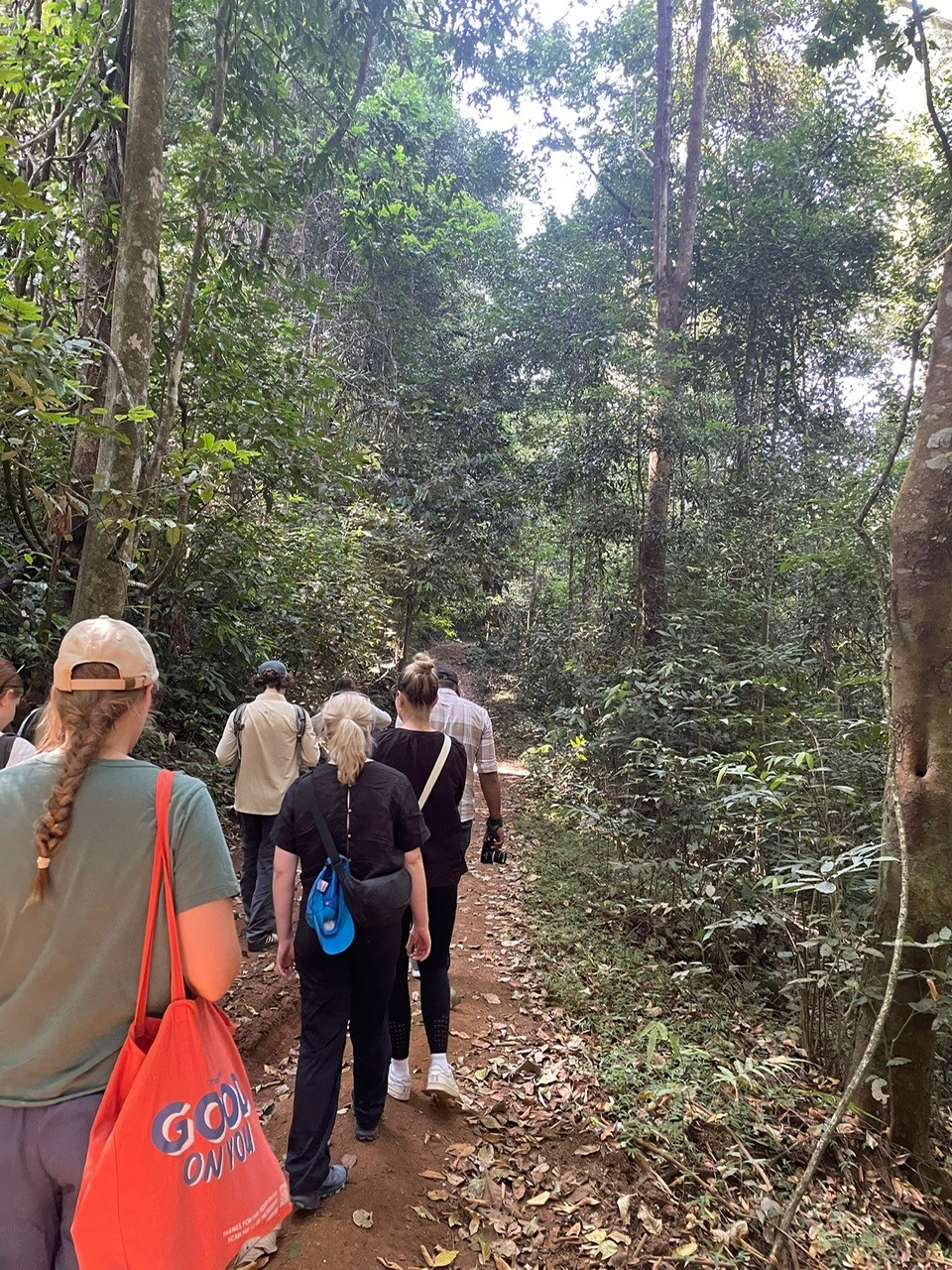
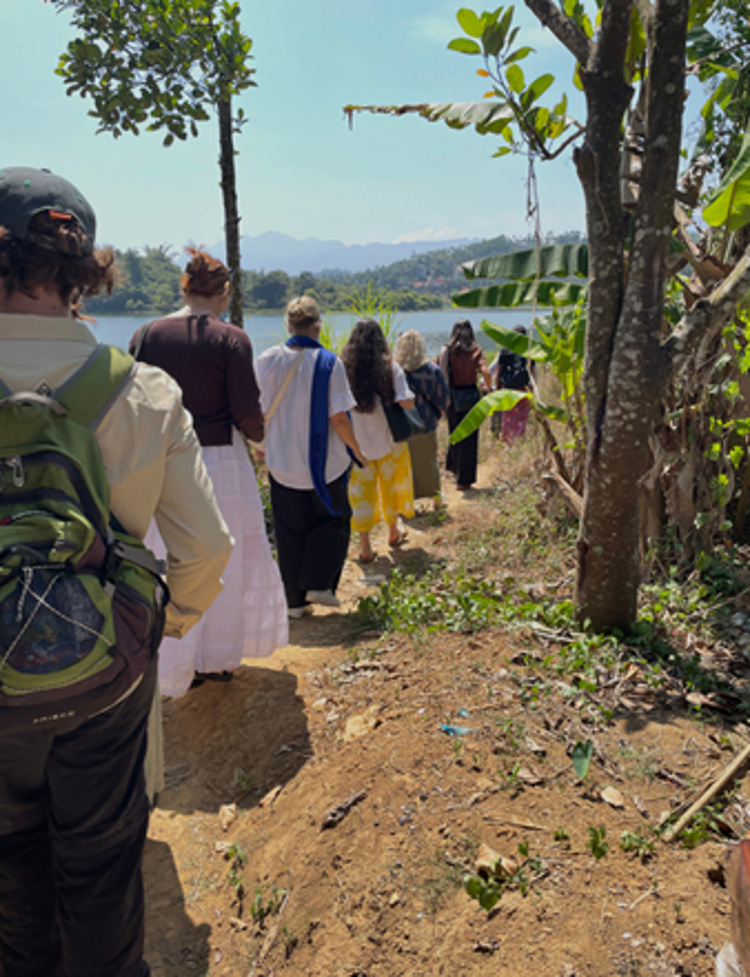
All participating students shared their learnings and reflections with the School of Public Health upon returning to Australia. One student, Josie Macdonald, described it as, “a remarkable and unforgettable opportunity that fostered immense academic and personal growth and solidified my passion for public health.”
“This experience enabled me to apply my public health skills in a real-world setting and significantly enhanced my knowledge of healthcare systems beyond the scope of Australia. I have deepened my understanding about how health policies and interventions are practically received by individuals and communities, and how socioeconomic barriers impede this. When reflecting of the numerous cultural differences encountered over the two weeks, I find myself continually drawing parallels between Australia’s and India’s healthcare systems and the challenges that individuals confront when accessing them. Engaging with community members who so graciously shared their lived experiences with us was both heartbreaking and affirming to our shared humanity that transcends cultural and linguistic differences” she said.
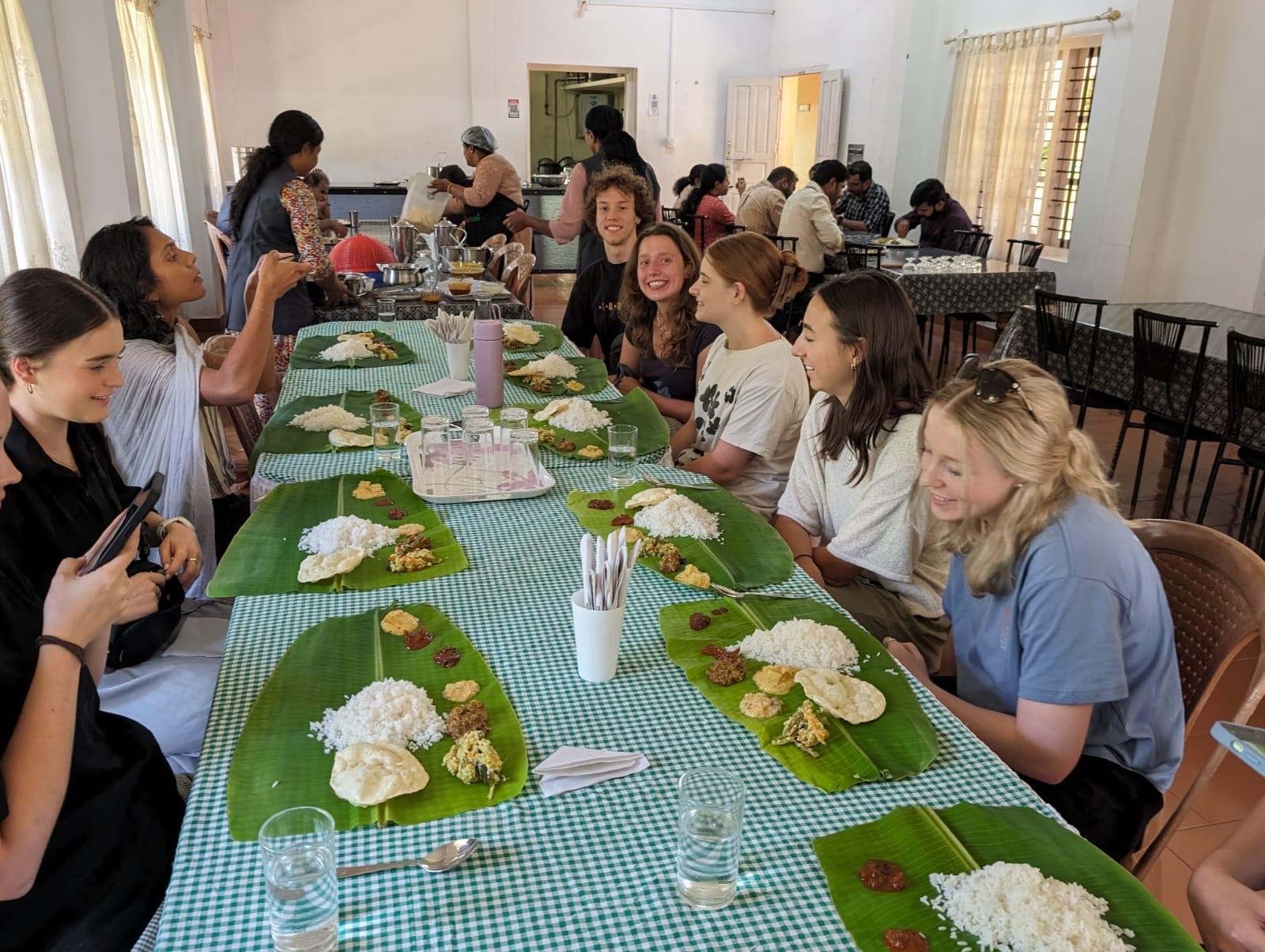
This unique immersion experience paves the way for future collaborations and research opportunities with the M.S. Swaminathan Research Foundation (MSSRF).
Building on the success of this tour, the School of Public Health is already planning their next New Colombo Plan tour to Vietnam later this year.



